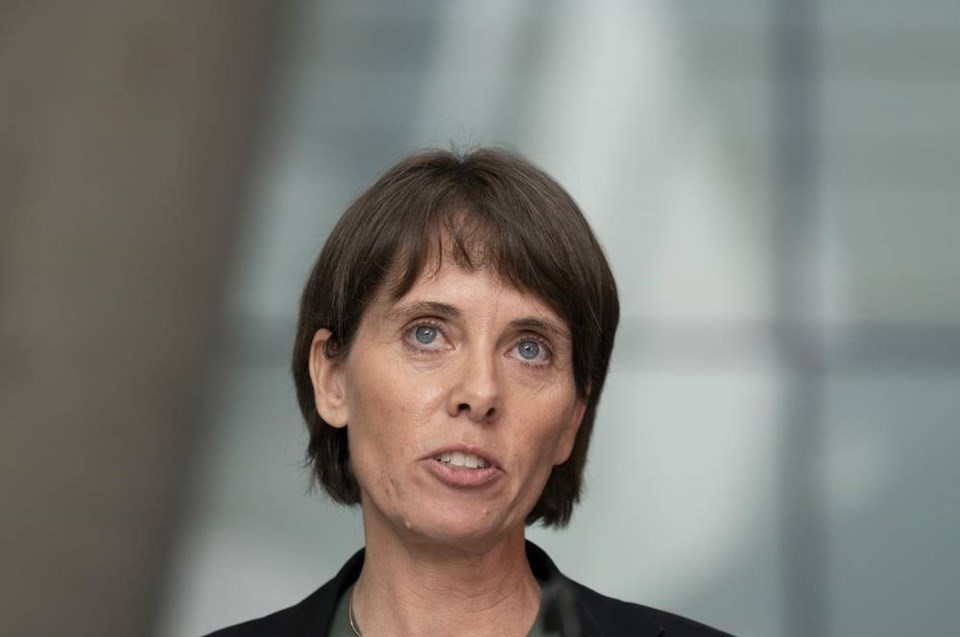You could install speed-of-light 5G wi-fi across the entire fleet with all the money governments have spent studying B.C. Ferries over the years.
The last big independent report in 2018 counted “14 reviews of governance, performance and safety … over the past 15 years.” (There’s been at least one more since then). But that didn’t stop B.C. Green Leader Sonia Furstenau on Monday from promising another one.
“Greens would bring B.C. Ferries back into government as a Crown Corporation, and conduct a full review of B.C. Ferries operations focused on providing an efficient, public service … and on improving the role of ferries in B.C.’s transportation network.”
Nothing reveals how Island-centric the Greens are more than the party’s stand on B.C. Ferries. They essentially want to move $1.4 billion worth of debt now indirectly covered by ferry users from the corporation’s books to the government.
A big jump in operating costs to make all the promised improvements would be handled in the same fashion.
So all taxpayers all over B.C. would backstop many of the costs for a service that coastal residents rely on more than anyone.
It will play well in the Greens’ Island base, but taxpayers elsewhere won’t be as enthusiastic.
The policy has a “ready, fire, aim” feel to it, given that they are promising a fundamental rebuild of the entire operation before the actual review is even started.
What if it concluded the current structure should be left as is?
Critics have been advocating restoring the outfit to Crown corporation status since the day after it established as an independent entity in 2003.
It’s a publicly-owned, privately-managed invention that the government subsidizes heavily, but from an arm’s-length.
New Democrats advocated returning it to direct control in a couple of election platforms but disengaged from the idea in 2017. Partly because it’s just a semantic exercise. The former B.C. Liberal government started grabbing back political control years ago by intervening in various policies.
The NDP followed suit. They cut fares, ordered more sailings and dictated restoration of free mid-week rides for seniors. It’s firmly established now that politicians have lots of control already over how the ferries are run.
Furstenau also rejected the idea that B.C. Ferries should make a profit. Her promise is to manage ferries as part of the transportation network, “rather than as an organization with a profit motive.
“We need to stop pretending that ferries should, or could, be run with a profit motive.”
But we already did that when COVID-19 hit. B.C. Ferries won’t turn a profit for years. And every nickel of the good profits it made in recent years was spent on building badly needed new ships, and leveraging borrowing to build more.
But Furstenau was clearly against that concept. “The goal is not to generate profit. The goal is to generate the service.”
It’s a very appealing recipe for users. It suggests an expensive commitment to improving service on smaller runs that never make money and always need subsidies. It also amounts to a promise to keep fares low.
But it also guarantees a huge jump in costs, most of which would be buried in the Transportation Ministry’s budget.
Of course it would take another minority government for the Greens to have any chance of advancing their ideas.
Neither of the bigger parties are interested in them, so B.C. Ferries would be one of the minor bargaining chips in any deal-making.
On the overall campaign, Furstenau is keeping her options open. She did her best to stay out of gaffes on the other teams, and was enthusiastic about the advantages of minority government.
She said they represent “a maturity in politics and governance that we need more than ever. I hope and aspire to have that maturity continue in B.C.”
For all the early pessimism about its lifespan, she said the NDP-Green confidence deal was the longest lasting minority government in the history of the province and has a long list of accomplishments.
Green chances have been undercut by former leader Andrew Weaver’s endorsement of the NDP, rather than the party he quit.
But Furstenau said people in the three Green Island ridings should be asking: “Do we want to go back to a false majority government where one party has all the power… or do we want more cooperative collaborative kind of governance?”



